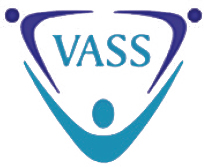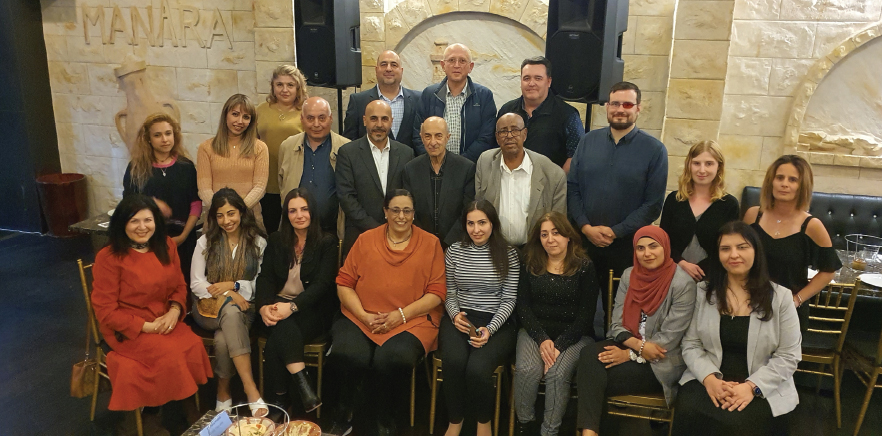11. Victorian Arabic Social Services
Evelyn Dowling and Kieran Hough

Victorian Arabic Social Services (VASS) is a state-wide key service provider with specialist expertise and knowledge in working with multicultural communities, particularly Arabic Speaking Background (ASB) communities, inclusive of Assyrian and Chaldean language groups. The work undertaken by VASS is underpinned by community development principles which aim to develop the resources and status of disadvantaged members of the target communities. They do so through increased access to services, decision-making and civic participation, education and employment, and enhanced community safety programs. VASS is an inclusive organisation, open to all people regardless of background, and operates on a ‘no-wrong door policy’. VASS is a grassroots organisation, with the majority of workers identifying as being of the same cultural and linguistic backgrounds as the client group. VASS provides a range of services including youth services, family services, support for gamblers and affected others, disability services, aged care services and settlement support. Pre-pandemic, VASS’s Head Office in Broadmeadows ran a drop-in centre which supported clients who presented with a vast array of different needs. VASS also participates in systemic advocacy, research, and provision of education to other service providers in relation to ASB communities.
 Image 19 Victorian Arabic Social Services Staff © Victorian Arabic Social Services.
Image 19 Victorian Arabic Social Services Staff © Victorian Arabic Social Services.
This image is used with the permission of Victorian Arabic Social Services and is not to be reproduced without permission. For more information, go to https://vass.org.au.
When Covid-19 cases grew and Victoria entered into associated restrictions from early 2020, VASS’s services of course had to change. For a range of reasons, including financial constraints, limited literacy and limited digital literacy, online telehealth is not appropriate for many in VASS’s client group, so the majority of services have been delivered over the phone during lockdowns and periods of restrictions. Only essential services (such as Home Care) for urgent, high-risk clients have been seen by a select few authorised staff on site or in the clients’ homes. The majority of Social Work students on placement in these periods have unfortunately been unable to undertake direct practice with clients, even via telephone. This is because of confidentiality, language and trust concerns of some service users, as well as the unplanned nature of client interactions. Additionally, as initial support and assessment can result in acute needs and circumstances being identified that require elevated support, we require that these client engagements can be observed by qualified staff members to ensure appropriate support is always available. Unfortunately, it has not been possible to ensure this oversite for phone calls made from remote placements. However, students have been able to have a range of other learning opportunities, described below. As an ethno-specific agency with a majority of bilingual and bicultural staff, VASS has also played (and continues to play) a role of community liaison and information provision for the Arabic speaking community in relation to Covid-19 restrictions, health measures and vaccination.
VASS is a partner agency with RMIT and has been taking 10 students a year since 2015. Generally, VASS hosts a range of students – on their first or second placements, Bachelor and Masters students. During the height of the pandemic in 2020, VASS hosted mainly Field Education 2 (second placement) students who focus on project work rather than direct practice. The project, research and policy focus fitted with the different learning experiences available when working remotely. This year (2021) VASS has returned to having a mix of students as the environment has been more flexible, we have been able to offer some onsite work but the placements have been again mostly remote.
Direct client work was, of course, difficult during the pandemic, so with our students we pivoted to focusing on project work. The students have excelled in this and have been able to undertake a range of projects that benefit their learning, but that are also very meaningful and useful to VASS as an organisation in meeting our broader aims. One student used academic literature and interviews with staff to create resources for other community organisations when working with people of ASB with disability. Another made a submission to the Royal Commission into Violence, Abuse, Neglect and Exploitation of People with Disability on behalf of VASS and the Victorian ASB community. Last year, in 2020, a student wrote grant applications, some of which have been successful. Two students this year have been implementing one of the successful grants – a project that delivers sports equipment to ASB families experiencing financial hardship, so that their children can play when at home during lockdown. Two students worked collaboratively (though from separate homes) on VASS’s Annual Report for 2021. While these projects developed the students’ knowledge in the specific service areas, we were also able to link the projects to the AASW learning areas. In group and individual supervision, students were able to reflect on how knowledge of social work theories, personal and professional values and ethics, assessment and intervention skills, communication skills, cultural competence and of course research skills related to and were developed throughout their projects.
Students placed with our Gambling Harm program have also completed several key pieces of research around supporting community members having input on local issues relating to gambling and pokie machines. Additionally, one student was able to use and incorporate their knowledge of computer games to develop an online training module designed to help community and youth workers respond to the issue of gambling mechanisms and loot box systems within popular computer games. This has been especially useful due to the increase in computer game use that has occurred through lock down.
It was an initial hiccough to adjust to working remotely, for staff and students, especially for those placements that began on site. But everyone soon adapted, and we were able to turn it into new learning opportunities. Use of Zoom for supervision sessions (group and individual) and meetings developed ITC and communication skills, and students reflected that working from home on projects developed their autonomy and organisation skills.
The first set of students in early 2020 began their placements on site, and then had to transition to remote placement when the lockdown measures were announced. This meant VASS was unable to plan what a remote placement would look like ahead of time. Instead, we learnt as we went, and the students demonstrated great flexibility and resilience as we did so. Some placement tasks had to be changed, for example researching a theory instead of applying it in practice. By the time the second and third cohorts of students began during 2020, fully in lockdown, VASS had more of an idea of how to create rich learning environments, including new placement tasks, the projects outlined above, as well as support and orientation. VASS already had an ‘Induction Kit’ for new placement students, which easily transitioned to working remotely, so orientation was not too different. We also thought of tasks and projects that necessitated communicating with a range of VASS’s staff members, so that students could be linked into the organisation. As VASS has been hosting a number of students over many years, there is an openness in the staff to supporting students’ learning, which continued via different modes when working and learning from home. We created two WhatsApp groups for the students (one with supervisors and one without) to communicate more informally, and a Google Drive to share resources between the students. This was done to encourage and try to mimic the peer-support they would usually get when on-site.
Self-care is always important for students on placement, however, even more attention was paid to this when students were working remotely. This involved more checking in from supervisors as to how students were feeling and coping, both with the placement and the wider Covid-19 lockdown situation. It also included practical elements like encouraging mini-breaks and time away from the computer during the placement day. The pandemic itself, of course, often came up in supervision, with students reflecting on the impact on themselves, VASS as an organisation, and the client group.
The team at GUSS WIL have been extremely helpful and supportive throughout this time. In the early stages of the pandemic in early 2020 especially, GUSS WIL staff were readily available to discuss questions and concerns over the phone. The team has also been flexible about the kinds of placements to offer students. There has always been, and at the time of writing still is, timely communication about any changes or issues affecting student placements. The creation of the Working From Home Checklist was useful, and some students found the suggested daily schedule very helpful. Pre-existing channels of support, such as the Partnership Reference Group, were also helpful in this time, giving further opportunities for communication, as well as sharing ideas and strategies.
Social Work placements can be an intense experience at any point; undertaking one during a pandemic and associated restrictions heightened this. Nonetheless, thanks to the support and guidance of RMIT, some creative thinking, and the students’ own adaptability, resilience and autonomy, students on placement at VASS have been able to undertake successful placements that helped prepare them for work in the field.

